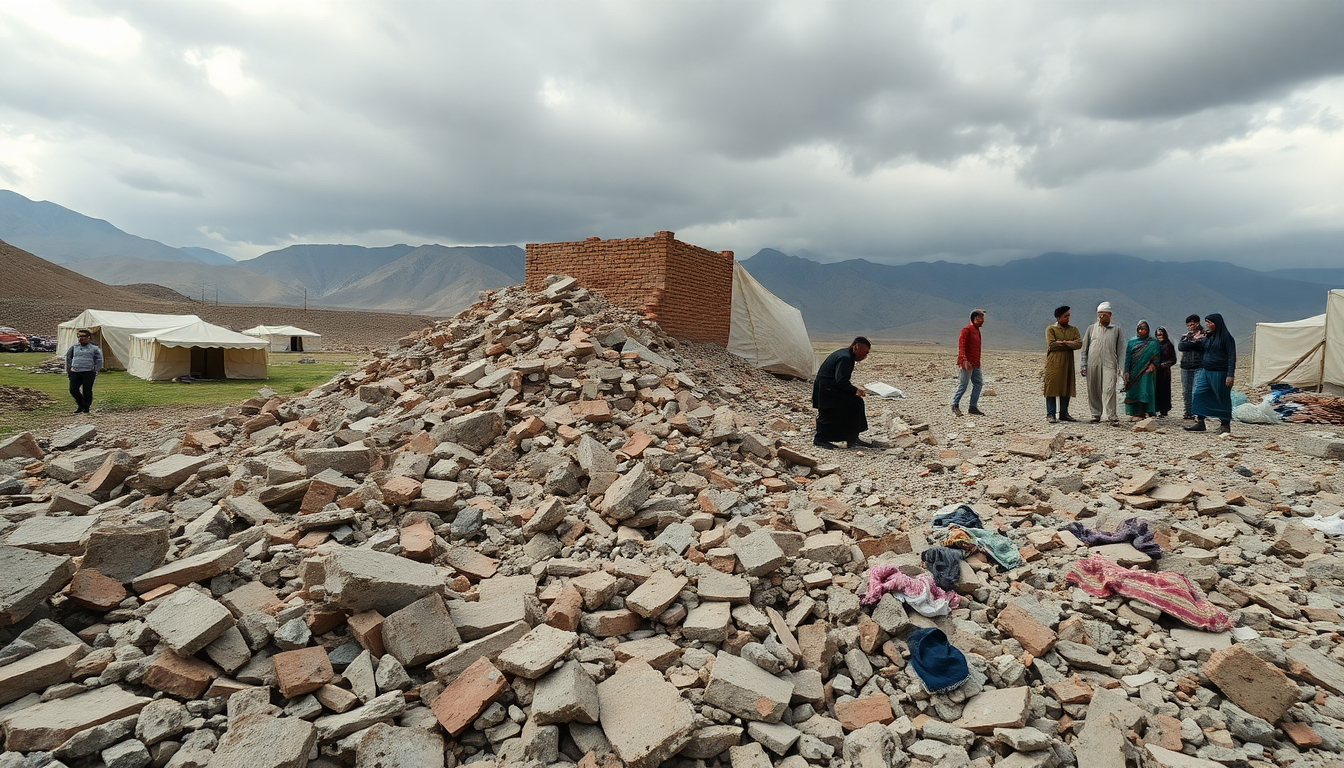Table of Contents
The recent earthquake in Afghanistan has thrown an already precarious humanitarian situation into even sharper relief. With over 800 lives lost and thousands injured, the Taliban’s urgent call for international assistance is resonating across the globe. This disaster adds to a crisis that has already been deepened by a severe drop in foreign aid and increased deportations of Afghan citizens from neighboring countries.
It’s clear that timely and substantial relief efforts are desperately needed, as local resources are stretched to their limits, leaving many victims without shelter or basic necessities.
The aftermath of the earthquake: a nation in distress
As rescue operations get underway, the hurdles faced by responders are daunting.
The challenging terrain and harsh weather conditions have made it tough to reach remote areas, complicating search and rescue missions. Reports indicate that rescuers are finding it difficult to access those in urgent need, underscoring the critical necessity for international support.
Alarmingly, the Taliban’s foreign office has pointed out that, so far, no foreign governments have stepped up to assist in the rescue or relief efforts, raising serious concerns about how quickly help will arrive.
In a country already wrestling with the aftermath of years of conflict, this earthquake adds new pressures on the Taliban’s governance.
With the economy teetering on the brink and public services crumbling, the responsibility of managing disaster recovery falls heavily on a regime that lacks both the resources and international backing to respond effectively.
The implications of declining foreign aid
The consequences of reduced foreign aid for Afghanistan are profound.
The Taliban administration is currently battling multiple crises, including skyrocketing unemployment and widespread poverty. This earthquake has only intensified these challenges, as the government struggles to provide even the most basic necessities for its citizens. The international community’s reluctance to engage with the Taliban complicates matters even further, leaving many Afghans feeling vulnerable and hopeless.
Given these circumstances, the call for assistance is urgent and critical. The loss of life and property due to the earthquake serves as a stark reminder of the precariousness of the Afghan people’s situation. Without a coordinated international response, the risk of further loss of life grows, as those affected remain trapped in the wreckage of their homes.
Looking ahead: the need for a comprehensive response
As the situation unfolds, it’s essential for the international community to rethink its approach to Afghanistan. While the challenges posed by the Taliban’s governance are significant, the humanitarian need transcends political dynamics. A well-rounded response that addresses immediate disaster relief while also considering the long-term needs of the Afghan population is crucial.
Forging partnerships with NGOs and humanitarian organizations can help streamline aid distribution and ensure that resources reach those who need them most. The crisis in Afghanistan is a powerful reminder that, in times of hardship, collective action is vital for alleviating human suffering and fostering resilience in communities facing unimaginable challenges. How can we, as a global community, come together to support those in need?





